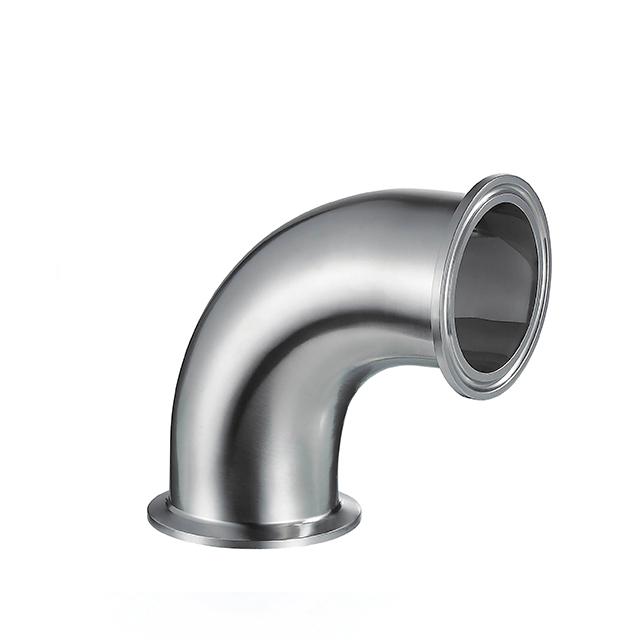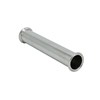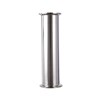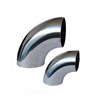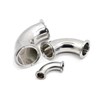Why Do 304 Sanitary Stainless Steel Pipes Rust And Corrode?
Why does 304 material Sanitary Stainless Steel Pipe Fittings rust and corrode
Many people think that 304 sanitary stainless steel pipes will definitely not rust, which is a wrong and one-sided view. First of all, the stainless steel pipe's stainlessness and corrosion resistance are conditional. Stainless steel pipes are steel pipes that do not rust in weakly corrosive environments such as the atmosphere and fresh water, and the chromium content in the steel must be ≥12%. If the chromium content is low or it is not used in a weakly corrosive environment such as the atmosphere (including in a weakly corrosive environment such as the atmosphere, but under conditions of local enrichment and concentration of Cl-), rust will occur. Acid-resistant steel pipes are steel pipes that are resistant to corrosion in strong corrosive media such as acids, alkalis, and salts, but they are also corrosion-resistant under certain conditions, such as the type of medium, temperature, concentration, impurity content, flow rate, pressure, etc. There are no stainless steel pipes in the world that are not rusty and corrosion-resistant under any conditions.
Simply put, the corrosion of sanitary stainless steel pipes is the damage and failure caused by chemical and electrochemical reactions between stainless steel pipes and corrosive media. According to the nature of the corrosion, it can be divided into chemical corrosion (corrosion in non-electrolyte solutions, such as oxidation of stainless steel pipes at high temperatures) and electrochemical corrosion: corrosion of steel and stainless steel pipes in humid atmospheres, aqueous solutions, and electrolyte solutions such as acids and alkali salts. Ions (electrons) are generated during the corrosion process. The essence of electrochemical corrosion is the effect of the primary battery.
For this reason, we must correctly select and reasonably use sanitary stainless steel pipes. The correct choice is to select stainless steel pipes according to the requirements of specific use conditions. Reasonable use is to use stainless steel pipes reasonably for their stainless and corrosion-resistant properties. Wrong selection or unreasonable use will cause stainless steel pipes to rust and corrode. Problems with the quality of stainless steel pipes will also cause stainless steel pipes to rust and corrode. Therefore, the quality of stainless steel pipes is the premise for the correct selection and reasonable use of stainless steel pipes.
